
Featured Blog | This community-written post highlights the best of what the game industry has to offer. Read more like it on the Game Developer Blogs or learn how to Submit Your Own Blog Post
Communication Tips for the Video Game Music Composer
Good communication amongst team members can make or break the development of a game. This article highlights some GDC 2016 sessions that discuss this topic, and also includes a personal anecdote from the development of the SimAnimals game.

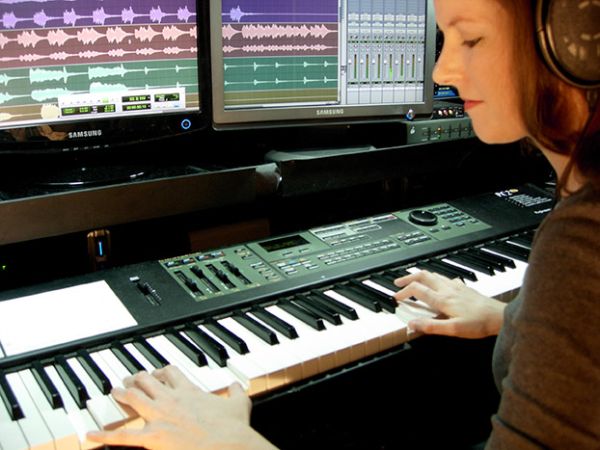 A successful career as a video game composer involves much more than our day-to-day challenges in our music studios. In addition to our role as music experts, we need to be well-rounded business people and great members of a creative team. As a speaker in the audio track of the Game Developers Conference this year, I had a chance to take in a wide variety of GDC sessions, and I noticed how often teamwork was discussed. Along the way, a common idea emerged from many of these talks -- good communication is key. This is a concept that I explored in my book (A Composer's Guide to Game Music), so I was delighted to see a further discussion of the issue at GDC this year. Far from just a valuable personality asset, the ability to communicate well must be considered a top priority: as intrinsically valuable as rock-solid competency, awesome artistry or compelling vision. Good communication amongst team members can make or break the development of a game. As game audio pros, we share this in common with our coworkers in other segments of the game development community. However, it becomes especially important for us to focus and emphasize good communication when we're working remotely as independent contractors. With that in mind, I thought I'd use this article to briefly highlight some GDC 2016 sessions in the game audio track that discussed this popular topic, so we can think about more ways to enhance and improve our communication skills. And later we'll discuss a practical example from my work on the music of the SimAnimals game from Electronic Arts.
A successful career as a video game composer involves much more than our day-to-day challenges in our music studios. In addition to our role as music experts, we need to be well-rounded business people and great members of a creative team. As a speaker in the audio track of the Game Developers Conference this year, I had a chance to take in a wide variety of GDC sessions, and I noticed how often teamwork was discussed. Along the way, a common idea emerged from many of these talks -- good communication is key. This is a concept that I explored in my book (A Composer's Guide to Game Music), so I was delighted to see a further discussion of the issue at GDC this year. Far from just a valuable personality asset, the ability to communicate well must be considered a top priority: as intrinsically valuable as rock-solid competency, awesome artistry or compelling vision. Good communication amongst team members can make or break the development of a game. As game audio pros, we share this in common with our coworkers in other segments of the game development community. However, it becomes especially important for us to focus and emphasize good communication when we're working remotely as independent contractors. With that in mind, I thought I'd use this article to briefly highlight some GDC 2016 sessions in the game audio track that discussed this popular topic, so we can think about more ways to enhance and improve our communication skills. And later we'll discuss a practical example from my work on the music of the SimAnimals game from Electronic Arts.
Getting the Gig
The session "Why I Rejected You: Observations from a Hiring Manager" focused on best practices for game audio job applicants. In this audio track presentation, Telltale Games Audio Director Michael Kamper teamed up with fellow presenter Jesse Harlin (former LucasArts music supervisor). Together, they explored what qualities could help game audio job seekers to stand out.
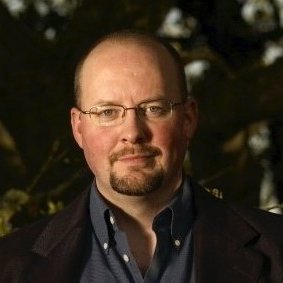 According to Kamper (pictured right), good communication needs to begin from the very first moments that an audio pro or video game composer contacts a company about an open position on their team. "Everyone around you is trying to get the same kind of jobs that you're trying to get," Kamper says, "and while I love the game audio community, and it's by far (at least in my opinion) the most interactive with each other and tight knit in any of the disciplines in games... we're also all competing at some level for a lot of the same gigs." Kamper warns, "You also have to know how to market yourself in order to get jobs."
According to Kamper (pictured right), good communication needs to begin from the very first moments that an audio pro or video game composer contacts a company about an open position on their team. "Everyone around you is trying to get the same kind of jobs that you're trying to get," Kamper says, "and while I love the game audio community, and it's by far (at least in my opinion) the most interactive with each other and tight knit in any of the disciplines in games... we're also all competing at some level for a lot of the same gigs." Kamper warns, "You also have to know how to market yourself in order to get jobs."
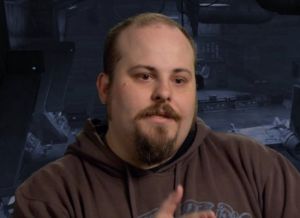 Jesse Harlin (pictured left) adds that as job seekers, we need to show prospective clients that we're enthusiastic and curious. This is especially important in an interview, whether that takes place face-to-face, on the phone, or via online video conferencing. "Always ask one smart question in your interviews," Harlin advises, and then describes a hypothetical job interview in which the prospective employee shows no interest in asking questions, even when the hiring manager solicits them. What does that say to the hiring manager? According to Harlin, that lack of curiosity makes the prospective employee seem thoroughly uninterested in the job. "There's gotta be something that you could ask me!" Harlin declares in exasperation.
Jesse Harlin (pictured left) adds that as job seekers, we need to show prospective clients that we're enthusiastic and curious. This is especially important in an interview, whether that takes place face-to-face, on the phone, or via online video conferencing. "Always ask one smart question in your interviews," Harlin advises, and then describes a hypothetical job interview in which the prospective employee shows no interest in asking questions, even when the hiring manager solicits them. What does that say to the hiring manager? According to Harlin, that lack of curiosity makes the prospective employee seem thoroughly uninterested in the job. "There's gotta be something that you could ask me!" Harlin declares in exasperation.
The entire GDC talk "Why I Rejected You: Observations from a Hiring Manager" is available for viewing by subscribers to the GDC Vault.
You hear that?
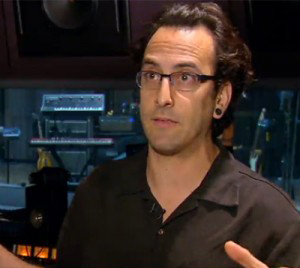 In the GDC talk, "You Hear That? Team Engagement for Audio," audio director Bradley D. Meyer (pictured right) of Sucker Punch Productions explores the importance of improving communication skills for audio folks within development teams. "We need to communicate better," Meyer observes. "We need to communicate better with ourselves, we need to communicate better with our teams, and if we're not communicating better, we need to be at least communicating with everybody that we can."
In the GDC talk, "You Hear That? Team Engagement for Audio," audio director Bradley D. Meyer (pictured right) of Sucker Punch Productions explores the importance of improving communication skills for audio folks within development teams. "We need to communicate better," Meyer observes. "We need to communicate better with ourselves, we need to communicate better with our teams, and if we're not communicating better, we need to be at least communicating with everybody that we can."
Taking things a step further, Meyer describes a way for us as audio professionals to communicate our creative vision for a project in its early development. "What's a sound concept? Hey, it's like concept art for sound!" Meyer says, drawing the comparison between early concept imagery generated by visual artists and early aural sketches recorded by audio artists. Meyer suggests that the pairing of these two early assets could be highly beneficial. "You know, the misconception that audio begins at the end of a project is something that we have been actively rebutting and continue to be rebutting by getting involved in the earliest possible moments to experiment with how sound can develop for early concepts," Meyer remarks. "So concept art coupled with concept sound makes the end product way more impactful, gives us a proving sound to start playing with our sound palettes, and also has an additional benefit of getting people really excited about audio early."
The entire GDC talk "Why I Rejected You: Observations from a Hiring Manager" is available for viewing by subscribers to the GDC Vault.
Music to Their Ears
 The GDC talk "Music To Their Ears: Best Practices for Developer Relations" approached the issue of effective communication from the perspectives of both an independent audio contractor and the CEO of a small indie development studio.
The GDC talk "Music To Their Ears: Best Practices for Developer Relations" approached the issue of effective communication from the perspectives of both an independent audio contractor and the CEO of a small indie development studio.
The two speakers included freelance video game music composer Richard Gould, and Dave Bisceglia (pictured left), CEO of the mobile game studio The Tap Lab. Both emphasized the vital importance of effective communication.
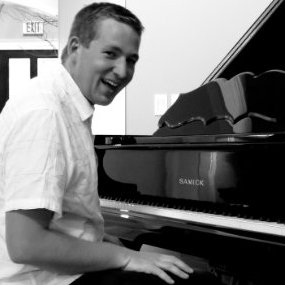 "Talk saves time!" Gould (pictured right) points out. "Try to discuss things as much as possible, whether its verbally or by email, before starting work. Or at least that's my experience. And then once you've got some kind of a sense of the direction you take, I like to start by sending and soliciting examples of other music and other sounds that might work in their world, so I can even start to think about instrumentation, or the texture of the sounds we're going for. And when you're doing that, it's really important to be very specific about what they like and what they don't like."
"Talk saves time!" Gould (pictured right) points out. "Try to discuss things as much as possible, whether its verbally or by email, before starting work. Or at least that's my experience. And then once you've got some kind of a sense of the direction you take, I like to start by sending and soliciting examples of other music and other sounds that might work in their world, so I can even start to think about instrumentation, or the texture of the sounds we're going for. And when you're doing that, it's really important to be very specific about what they like and what they don't like."
Gould also urges us to submit our own audio sketches throughout development, in the effort to be incorporated into the creative process of the team. "Don't be afraid to express your own opinion and your own thoughts as to what may (or may not) work," Gould asserts. "Sending your own ideas, sending your own examples. It doesn't have to be a one-way street. They brought you on not necessarily just to create assets all the time. Possibly (and hopefully) they are looking for some kind of a creative input as well."
The entire GDC talk "Music To Their Ears: Best Practices for Developer Relations" is available for viewing by subscribers to the GDC Vault.
An Example: SimAnimals
Concept sketches can be a very useful tool for communicating with the developers, especially at the beginning of a project. To discuss this idea from a less abstract vantage point, let's explore an example from one of my own projects.
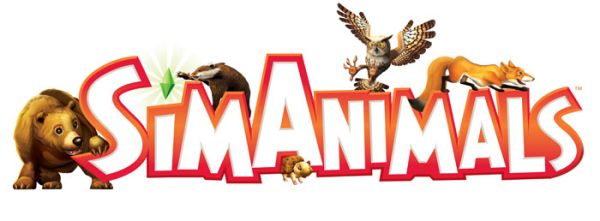 After Electronic Arts hired me to create the music for the SimAnimals video game (another installment in the famous Sims franchise), I composed and recorded several short tracks that were essentially concept sketches for the main theme of the game. The style and tone of the sketches rose from conversations I'd had with the developers, wherein they'd told me about what had inspired them to create the world of SimAnimals, and how they imagined the music of their game would sound. Working from these conversations, I created several music sketches, but none of them seemed quite right. We went back and forth for awhile, without hitting the musical target. While we hadn't found a successful solution, this iterative process proved extremely useful in ruling out ineffective approaches.
After Electronic Arts hired me to create the music for the SimAnimals video game (another installment in the famous Sims franchise), I composed and recorded several short tracks that were essentially concept sketches for the main theme of the game. The style and tone of the sketches rose from conversations I'd had with the developers, wherein they'd told me about what had inspired them to create the world of SimAnimals, and how they imagined the music of their game would sound. Working from these conversations, I created several music sketches, but none of them seemed quite right. We went back and forth for awhile, without hitting the musical target. While we hadn't found a successful solution, this iterative process proved extremely useful in ruling out ineffective approaches.
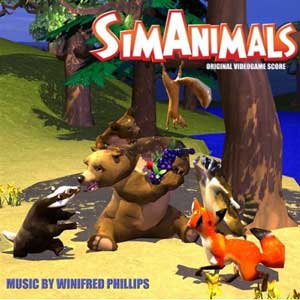 We continued in this way for a short while, and then I decided to be a bit more bold in my musical choices for the project. I took a chance, composed a musical sketch in a style very different from anything we'd discussed, and submitted it. It was a risky move, but well worth it -- that sketch hit the bulls-eye for the development team. They loved it, and asked me to enlarge upon it to create the SimAnimals musical theme for the game. While the iterative process of sketches had led us down quite a few dead ends, it had also revealed what musical choices weren't working, and that made it possible to hone in on a compositional approach that actually would work. In fact, the musical style from that initial sketch became the template for the instrumentation and style of music for the entire musical score for the game (soundtrack album release available here), and the whole team was very happy with the result. Here's the final full-length version of the musical theme I composed for SimAnimals:
We continued in this way for a short while, and then I decided to be a bit more bold in my musical choices for the project. I took a chance, composed a musical sketch in a style very different from anything we'd discussed, and submitted it. It was a risky move, but well worth it -- that sketch hit the bulls-eye for the development team. They loved it, and asked me to enlarge upon it to create the SimAnimals musical theme for the game. While the iterative process of sketches had led us down quite a few dead ends, it had also revealed what musical choices weren't working, and that made it possible to hone in on a compositional approach that actually would work. In fact, the musical style from that initial sketch became the template for the instrumentation and style of music for the entire musical score for the game (soundtrack album release available here), and the whole team was very happy with the result. Here's the final full-length version of the musical theme I composed for SimAnimals:
What I learned from my experience on the SimAnimals project was two-fold:
Musical sketches can be a powerful communications tool.
Don't be afraid to speak up and express your ideas for a project.
Speak Up!
All three of the GDC talks that we've discussed in this article urged attendees to not be afraid to speak up and express themselves, while championing the interests of game music and sound throughout the development process. I hope you've found some useful guidance from this article, and please feel free to share your own experiences in the comments section below!
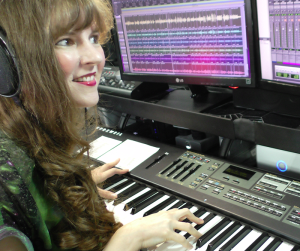 Winifred Phillips is an award-winning video game music composer whose most recent project is the triple-A first person shooter Homefront: The Revolution. Her credits include five of the most famous and popular franchises in video gaming: Assassin’s Creed, LittleBigPlanet, Total War, God of War, and The Sims. She is the author of the award-winning bestseller A COMPOSER'S GUIDE TO GAME MUSIC, published by the Massachusetts Institute of Technology Press. As a VR game music expert, she writes frequently on the future of music in virtual reality video games.
Winifred Phillips is an award-winning video game music composer whose most recent project is the triple-A first person shooter Homefront: The Revolution. Her credits include five of the most famous and popular franchises in video gaming: Assassin’s Creed, LittleBigPlanet, Total War, God of War, and The Sims. She is the author of the award-winning bestseller A COMPOSER'S GUIDE TO GAME MUSIC, published by the Massachusetts Institute of Technology Press. As a VR game music expert, she writes frequently on the future of music in virtual reality video games.
Follow her on Twitter @winphillips.
Read more about:
Featured BlogsAbout the Author(s)
You May Also Like
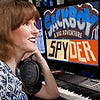
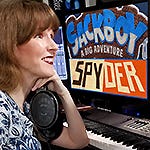





.jpeg?width=700&auto=webp&quality=80&disable=upscale)








